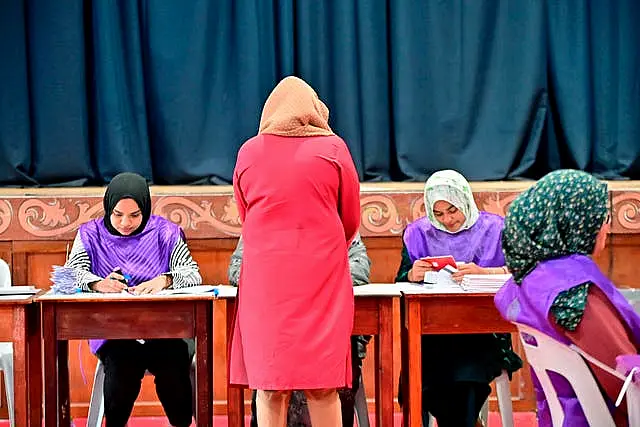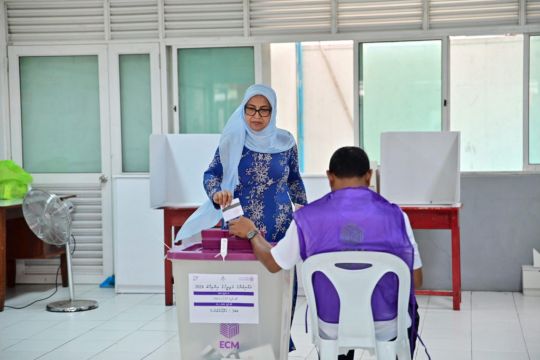Maldivians were voting in parliamentary elections on Sunday, in a ballot crucial for President Mohamed Muizzu, whose policies are keenly watched by India and China as they vie for influence in the archipelago nation.
Both countries are seeking a foothold in the Maldives, which has a strategic location in the Indian Ocean.
Mr Muizzu’s election as president last year sharpened the rivalry between India and China, with the new leader taking a pro-China stance and acting to remove Indian troops stationed on one of the country’s islets.
Securing a majority in Parliament will be tough for the president because some of his allies have fallen out and more parties entered the race.
Six political parties and independent groups are fielding 368 candidates for 93 seats in Parliament. That is six more seats than the previous parliament following adjustments for population growth.
About 284,000 people were eligible to vote and tentative results were expected to be announced late on Sunday.

Mr Muizzu’s election campaign theme for president was “India out”, accusing his predecessor of compromising national sovereignty by giving India too much influence.
At least 75 Indian military personnel were stationed in the Maldives and their known activities were operating two aircraft donated by India and assisting in the rescue of people stranded or faced with calamities at sea. Mr Muizzu has taken steps to have civilians take over those activities.
Relations were further strained when Indian social media activists started campaign to boycott Maldives tourism. That was in retaliation for three Maldivian deputy ministers making derogatory statements about Indian Prime Minister Narendra Modi for raising the idea of promoting tourism in Lakshadweep, India’s own string of islands similar to the Maldives.
According to recent Maldives government statistics, the number of Indian tourists has fallen, dropping that country from being the top source of foreign visitors to number six.
Mr Muizzu visited China earlier this year and negotiated an increase in the number of tourists and inbound flights from China.
In 2013, the Maldives joined China’s “Belt and Road” initiative aimed at building ports and highways to expand trade – and China’s influence – across Asia, Africa and Europe.







